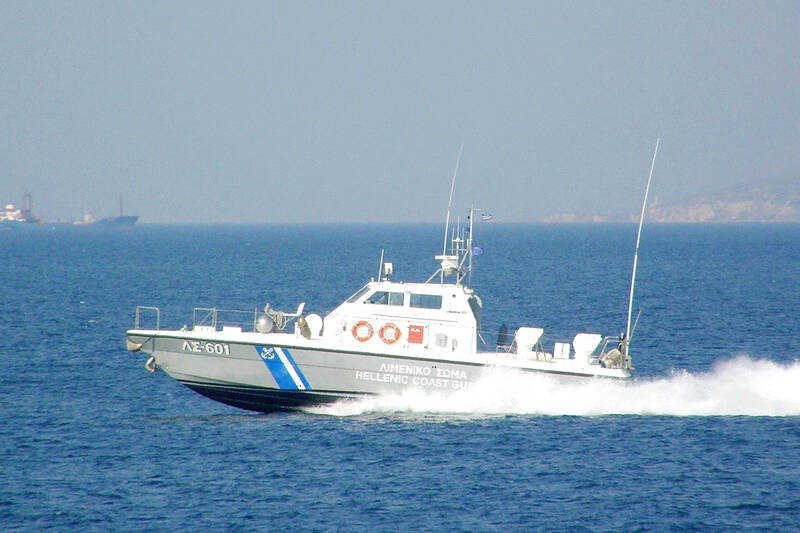In a tragic incident off the Greek coast, an overcrowded fishing vessel carrying around 750 migrants overturned on June 14. This accident claimed the lives of over 80 people.
These desperate migrants had opted for the dangerous sea route via Greece because of its standing as a major gateway to the European Union. Unfortunately, the number of people exceeded the capacity of the boat, and it overturned. Following the disaster, Greek authorities initiated a thorough inquiry amid accusations of negligence. Claims that the ill-fated boat overturned because of poorly executed towing attempts by the Greek coastguard were hotly contested. Officials insisted any line thrown to the boat was merely to assess the boat’s situation, not to tow.
The boat was transporting a diverse group of migrants, individuals who had left their home countries for Europe in hopes of improved living conditions or employment. Given the economic turmoil and political instability in Pakistan, where around half of the migrants on the boat came from, a significant proportion of those involved in the incident could be classified as refugees. These were people compelled to abandon their homelands not by choice, but by adverse conditions threatening their survival. Accompanying them were people who had resolved to make Europe their permanent home for whatever reason. In fact, waves of immigrants have created heightened tension in Europe since the 2010s, prompting increasingly rigorous border controls that only address the symptoms without addressing the root causes of mass migration.

Photo from Wikimedia / 照片:Wikimedia提供
This distressing incident highlights the grim realities of the ongoing migrant crisis in the Mediterranean, which is putting the lives of countless families in peril. Their desperate voyages not only challenge Europe’s border regulations but also reveal the deeper, unresolved crisis of the global inequality that forces migrants to seek better lives.
在希臘外海發生了一起悲慘事件,一艘承載約750名移民而擁擠不堪的漁船於6月14日翻覆。這場意外造成80多人罹難。
這些絕望的移民選擇了經由希臘的危險海路,因為該國有歐盟主要門戶的地位。不幸的是,乘船人數超出了船隻的載客量,船隻翻覆了。在這起災難事件發生後,希臘當局在面對過失的指控當中展開徹查。有人聲稱這艘命運多舛的船隻會翻覆是因為希臘海巡隊嘗試拖曳船隻的行動執行不當,但這一說法遭到了強烈反駁。官員堅稱向船隻拋擲的任何繩索都僅僅用於評估船隻情況,並非拖曳船隻。
這艘船隻運送著形形色色的一群移民,他們離開祖國前往歐洲,希望獲得更好的生活條件或就業機會。船上的移民大約有一半來自巴基斯坦,鑑於該國經濟動盪和政治不穩定的情況,受此事故牽連的很大一部分人可以被歸類為難民。這些人被迫放棄家園,這並非出於選擇,而是受到威脅他們生存的不利條件所迫而不得不為之。一同乘船的還有那些無論出於何種原因都決定將歐洲作為永久家園的人。事實上,自西元2010年代以來,移民潮引發歐洲緊張局勢升溫,促使邊境管制日益嚴格,但這項做法只是治標不治本,並未解決大規模移民的根本原因。
這起令人痛心疾首的事件突顯了持續發生於地中海地區的移民危機的嚴峻現實,這使無數家庭的生命處於險境之中。他們的絕望航程不僅是對歐洲邊境規範的挑戰,也揭示了更深層次而尚未化解的全球不平等危機,這種不平等迫使移民尋求更好的生活。
MORE INFORMATION
overturn v. (使)翻覆
standing n. 地位
initiate vt. 啟動;開始
negligence n. 過失;疏忽
contest vt. 質疑;反駁
adverse adj. 不利的;負面的
heighten vt. 加劇;增強
rigorous adj. 嚴格的;嚴厲的
distressing adj. 令人痛心的
the Mediterranean 地中海
KEY VOCABULARY
1. migrant n. 移民;遷徙者
The migrant workers travel from place to place in search of employment.
這些移工四處奔波以尋找工作。
2. inquiry n. 調查;打聽
The committee conducted an inquiry to uncover the truth behind the financial scandal.
委員會進行了調查,揭示這起金融醜聞背後的真相。
3. amid prep. 在……當中
Jay couldn’t find his homework amid the piles of clothes and books that covered his bedroom.
杰在堆滿他臥室的一堆堆衣服與書本之中找不到他的回家作業。
4. accusation n. 指控;譴責
Jason made an accusation that Daniel was the one responsible for murdering the cook.
傑森指控丹尼爾正是那位謀殺廚師的人。
5. execute vt. 執行;完成
The robbers waited until night to execute their plan to break into the bank.
強盜們等到夜晚才執行他們闖入銀行的計畫。
6. turmoil n. 動盪;混亂
The huge earthquake caused turmoil in the city; people were left homeless and had to steal food.
那場大地震在該城市引起騷動;人們無家可歸且不得不偷取食物。
7. compel vt. 迫使;激起
The raging storm compelled the captain to make quick decisions to ensure everyone’s safety.
這場狂風暴雨迫使船長迅速做出決定,以確保每個人的安全。
8. grim adj. 嚴峻的;令人沮喪的
Although the situation was grim, the soldiers vowed to keep fighting.
儘管局勢嚴峻,但士兵們發誓要繼續戰鬥。
9. peril n. 危險;險境
Firefighters rushed to save residents in peril from the blazing building.
消防員連忙從燃燒的建築物中拯救身處於險境之中的居民。
學習音檔: https://magazine.english4u.net/Magdata/menu/3dust
《空中美語》雜誌APP免費下載: https://www.english4u.net/apps/index.aspx
免費收聽當月《空中美語》雜誌課文朗讀及解析 !
文章由AMC空中美語授權使用: https://www.english4u.net

Despite being thoroughly prepared for the coming exam, Sarah couldn’t stop herself from thinking about what could go wrong on test day. So, she kept studying her textbooks again and again. Do you often find yourself caught in this same type of loop, endlessly thinking about scenarios? If so, you’re likely struggling with a common challenge: overthinking. Overthinking is a phenomenon in which individuals become trapped in a tangle of worries, continuously replaying past events in their mind or feeling uneasy about what the future holds. It’s like being stuck in a never-ending loop of negative thoughts that can prove challenging

Wisdom teeth are another example of vestigial organs. Why do humans have wisdom teeth? One theory suggests that they were originally intended to help support muscles and tissues in the human face. Another theory indicates that they were initially meant to aid our ancestors in chewing certain tough foods that grew in the wild. As our diets have softened with processed foods, these teeth may become less necessary. Removing one’s wisdom teeth can feel like a rite of passage for many young adults. At some point in their late teens to early twenties, most people will have up to

Ford Motor Co. says it will reduce its workforce by 4,000 in Europe and the UK by the end of 2027, citing headwinds from the economy and pressure from increased competition and weaker than expected sales of electric cars. Ford said Wednesday last week most of the job cuts would come in Germany and would be carried out in consultation with employee representatives. Of the total, 2,900 jobs would be lost in Germany, 800 in Britain and 300 in other European Union countries. Ford has 28,000 employees in Europe, and 174,000 worldwide. “The global auto industry continues to be in a period of

Social Distancing 的“social” 是指什麼? 各國政府為了控制疫情,都提出寬嚴不一的social distancing 措施,所謂 social distancing,就是透過非藥物的感染控制手段 (nonpharmaceutical interventions) 隔離人群,避免、減少人際接觸,以減少感染機會,讓死亡率降到最低 (minimize disease transmission and mortality)。 Social distancing 最適用於會透過飛沫傳染 (droplet contact)、直接/間接接觸傳染 (direct/indirect physical contact) 以及空氣傳染 (airborne transmission) 的傳染病,因為將人群隔離、減少接觸,可以有效阻絕病毒傳播。具體的措施有:鼓勵人待在家、限制外出、外出時保持人與人之間的距離等。 但是,社會心理學也有一個很接近的術語 Social Distance(社會距離),應注意兩者不要混淆。 「社會距離」係指人與人、群體與群體之間的等級或關係親疏的程度。譬如生活在大都會的民眾,要接觸很多人,為保持自己心理的平衡,都市人不過分熱情,個體與外界保持距離,甚至鄰居互不往來。 Social distancing 是為了防止疾病傳播,保持(人際/社交)安全距離,social distancing 的 social一詞,指的是「人際」、「社交」,不宜直譯為「社會」。 另有少部分華文報導譯為「社交隔離」: 社交隔離值不值?剖析經濟學 vs. 流行病學的量化權衡 (2020 年4 月27 日,《華爾街日報》) 但如此一來,又容易與另一個心理學名詞 social isolation(社交隔離/社交孤立)搞混,所以不宜如此翻譯。 防疫必備詞彙:社交距離 社交距離 social distancing 避免人潮 avoid crowds 集中檢疫 collective quarantine 接觸者追蹤 contact tracing 遏制疫情 contain the epidemic 防疫破口 infection control breach 文章由書林出版公司提供: www.bookman.com.tw 蘇正隆 — 台灣翻譯學學會前理事長、師大翻譯研究所兼任副教授; 編著《英語的對與錯》,《世紀病毒:必讀防疫英文知識與詞彙》...等